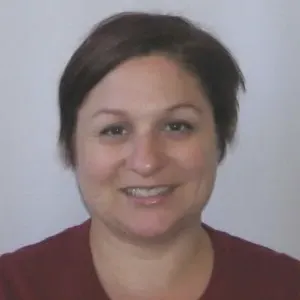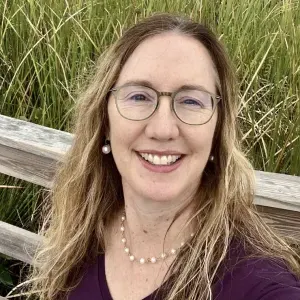Born on December 11, 1876, in Moorhead, Minnesota, Ada Comstock was the eldest of three children. As a bright, vivacious child, her father, a successful lawyer, recognized her capabilities and potential and set about to cultivate them by encouraging an early and sound education for his daughter.
Ada completed her high school education at the age of 15 and went on to college. In 1895 she transferred from the University of Minnesota to Smith College, where she completed her last two years of undergraduate study. As a Smith student, Ada often questioned the established rules and norms of college life. While a resident of Hubbard House, she was given a case of champagne, which the housemother felt should be given away. Instead, in a move characteristic of Ada's spirit, she decided to store it in the water cooler to refresh her friends!
After graduating from Smith in 1897, Ada went on to a graduate program at Moorhead State Normal School, where she became certified to teach, and then entered Columbia University for graduate work in English, history and education. In 1907, after teaching rhetoric at the University of Minnesota, she was appointed the university's first dean of women. In that capacity, she was instrumental in improving the quality of life for the women of the college, arguing persistently that a college was responsible for one's physical and intellectual well-being.
In 1912, Ada came to Smith to serve as the first dean of the college and to teach English. One of the most important tenets of her educational philosophy was the inculcation of self-respect in young women, one aspect of which was knowing how to employ oneself. Ada strongly believed that a college education should inspire women to take part in shaping the world.
In 1917, when the presidency of Smith College became vacant, Ada was given the responsibility of Smith's operation for approximately six months. The chance to become the president of a women's college presented itself in 1923, when Radcliffe offered Ada the position of its first full-time president. Under President Comstock, Radcliffe launched a nationwide admission program, improved student housing, constructed new classroom buildings and expanded the graduate program.
In 1943, at the age of 67, after achieving what she set out to accomplish at Radcliffe, Ada stepped down from her presidency. Shortly thereafter she announced her marriage to Wallace Notestein, Sterling Professor Emeritus of History at Yale University, a man she had known since her days at the University of Minnesota.
In retirement Ada was involved with the Smith College Board of Trustees, worked on plans for the graduate center at Radcliffe, did extensive educational committee work, administered a two-career household and traveled extensively with her husband. She remained active in her work for higher education for women until her death at 97.
















